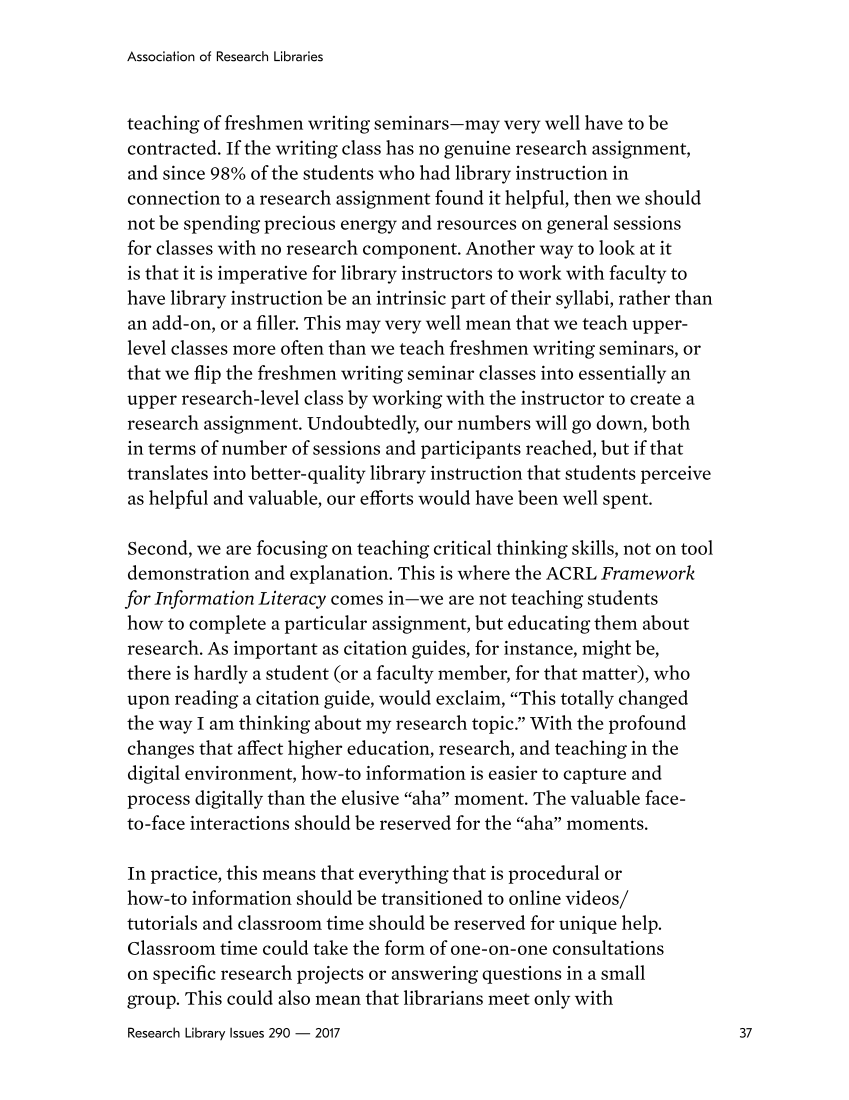37 Association of Research Libraries Research Library Issues 290 — 2017 teaching of freshmen writing seminars—may very well have to be contracted. If the writing class has no genuine research assignment, and since 98% of the students who had library instruction in connection to a research assignment found it helpful, then we should not be spending precious energy and resources on general sessions for classes with no research component. Another way to look at it is that it is imperative for library instructors to work with faculty to have library instruction be an intrinsic part of their syllabi, rather than an add-on, or a filler. This may very well mean that we teach upper- level classes more often than we teach freshmen writing seminars, or that we flip the freshmen writing seminar classes into essentially an upper research-level class by working with the instructor to create a research assignment. Undoubtedly, our numbers will go down, both in terms of number of sessions and participants reached, but if that translates into better-quality library instruction that students perceive as helpful and valuable, our efforts would have been well spent. Second, we are focusing on teaching critical thinking skills, not on tool demonstration and explanation. This is where the ACRL Framework for Information Literacy comes in—we are not teaching students how to complete a particular assignment, but educating them about research. As important as citation guides, for instance, might be, there is hardly a student (or a faculty member, for that matter), who upon reading a citation guide, would exclaim, “This totally changed the way I am thinking about my research topic.” With the profound changes that affect higher education, research, and teaching in the digital environment, how-to information is easier to capture and process digitally than the elusive “aha” moment. The valuable face- to-face interactions should be reserved for the “aha” moments. In practice, this means that everything that is procedural or how-to information should be transitioned to online videos/ tutorials and classroom time should be reserved for unique help. Classroom time could take the form of one-on-one consultations on specific research projects or answering questions in a small group. This could also mean that librarians meet only with









































